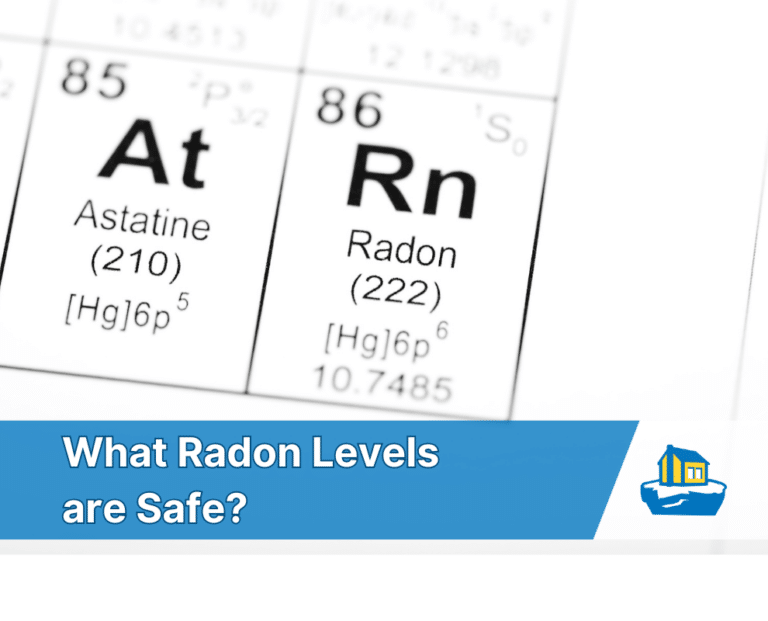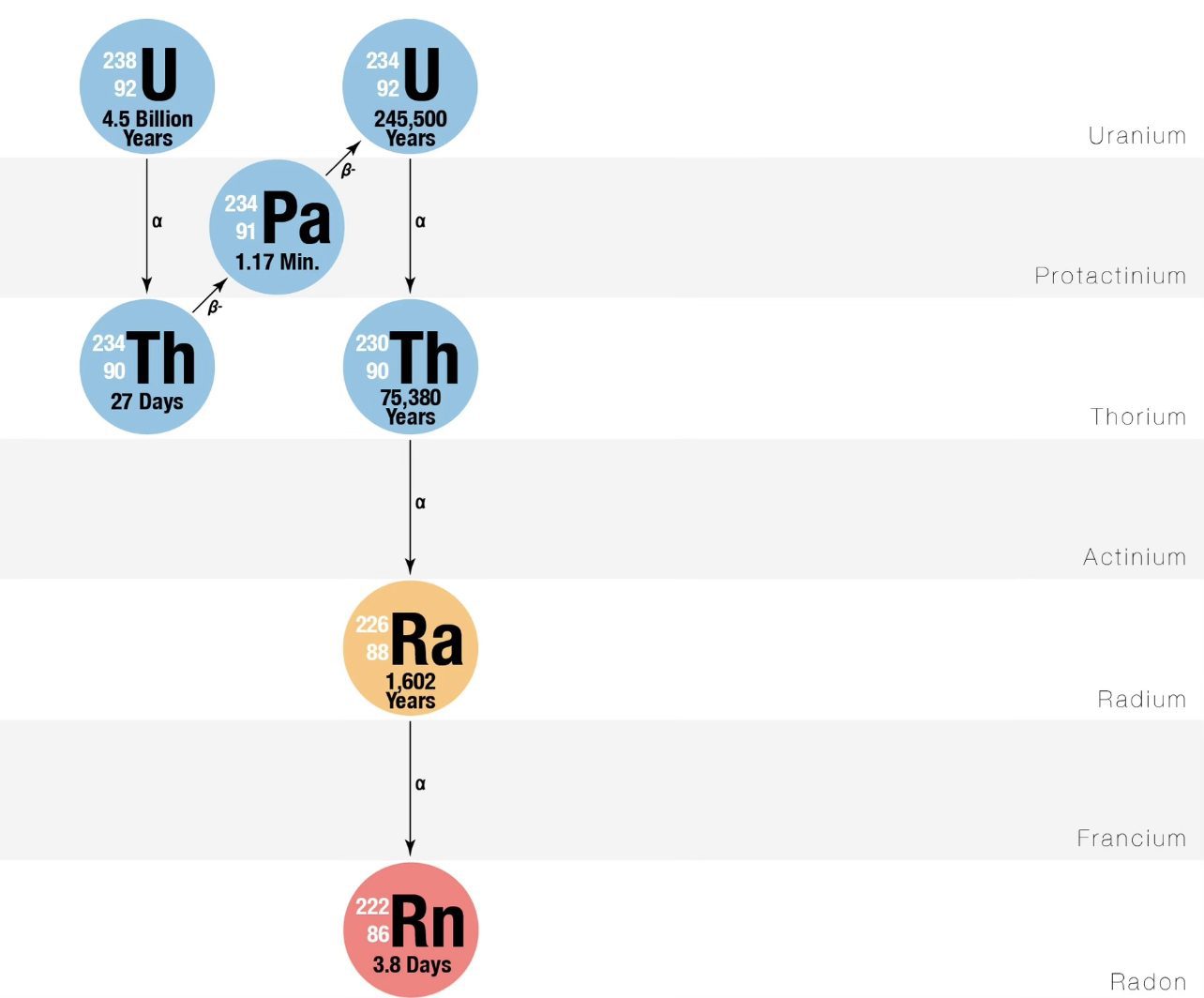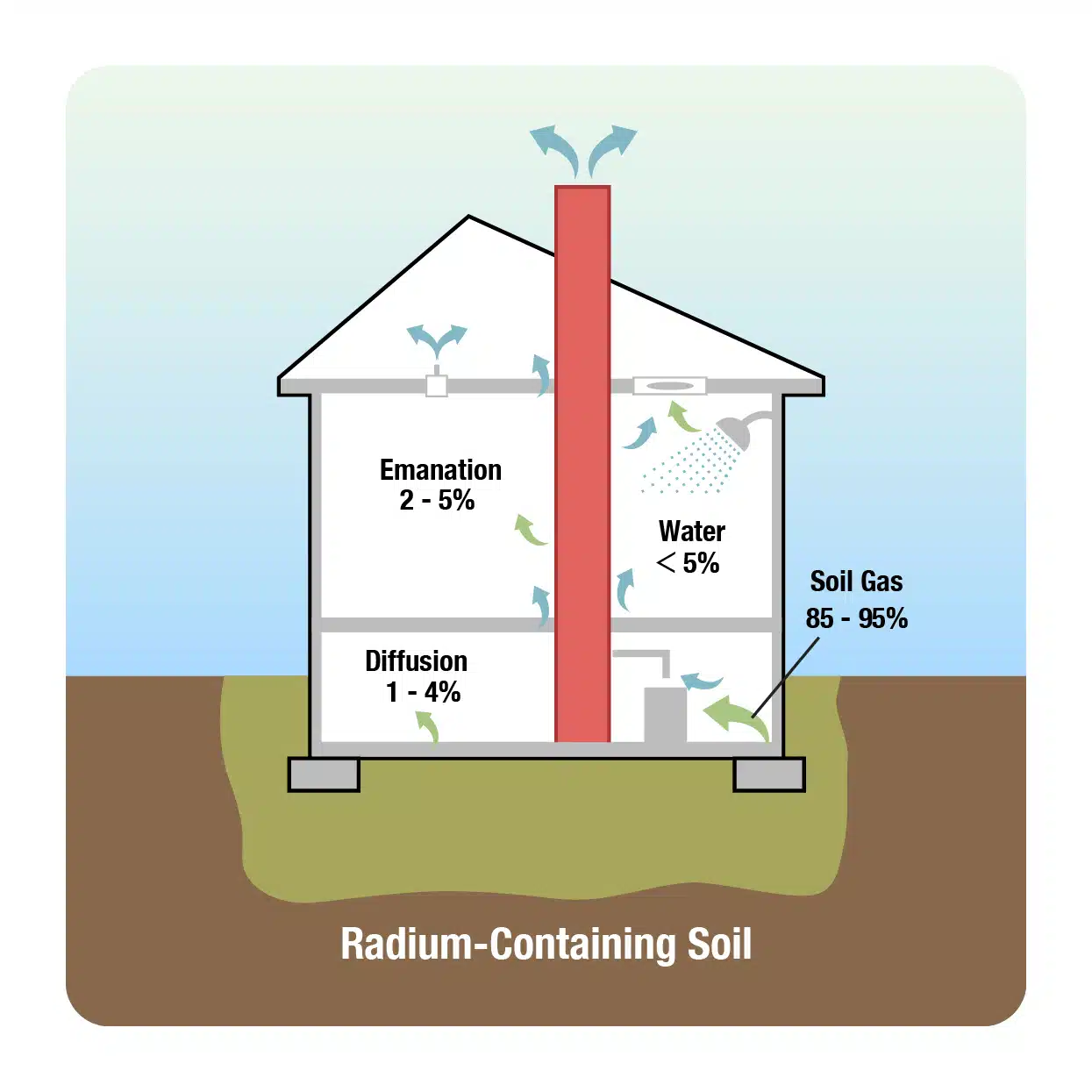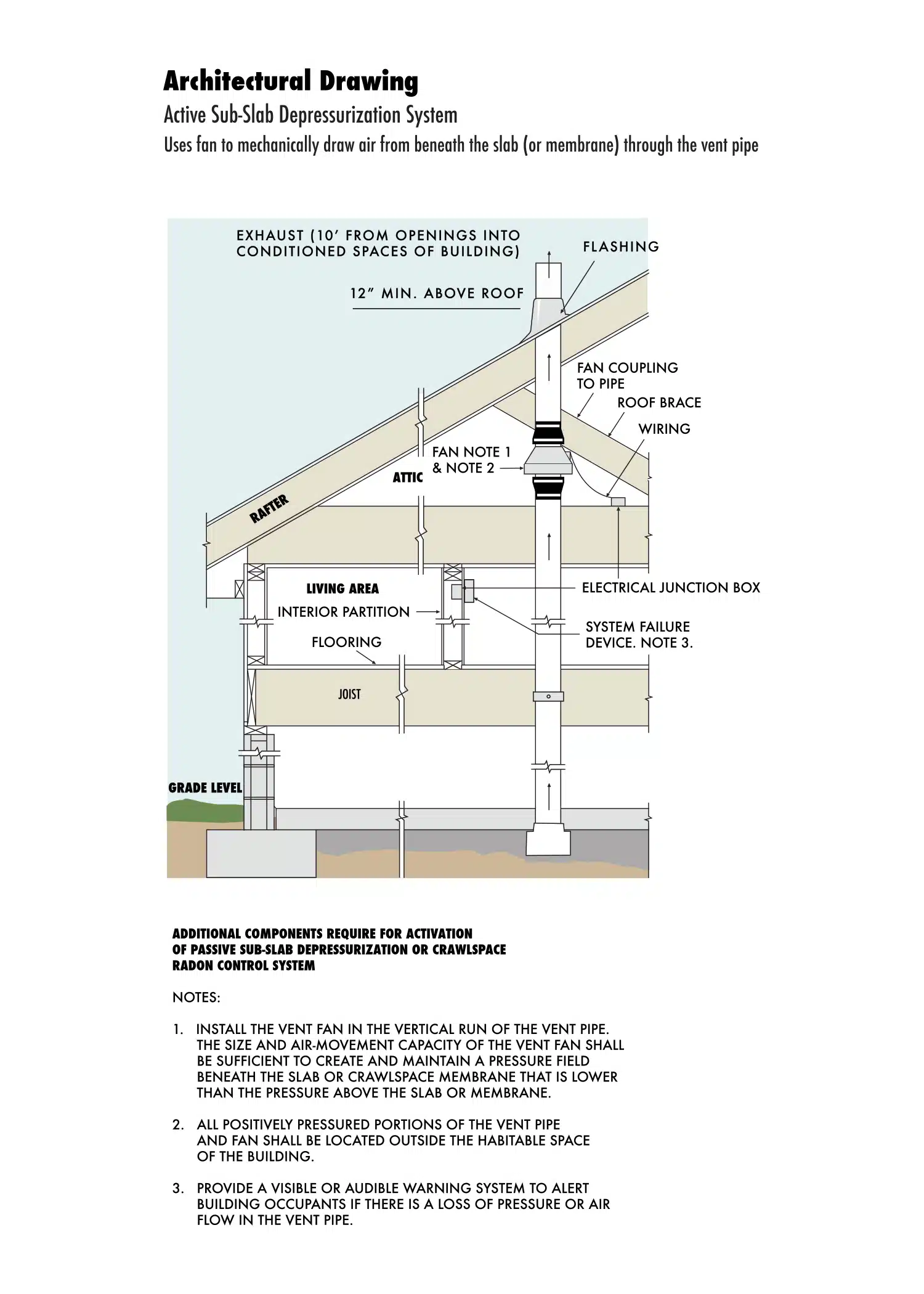4.9 1890+ Google Reviews

Radon is the second leading cause of lung cancer and lung cancer deaths. Likewise, it's important for all homeowners to understand what radon is and what radon levels are safe.
Technically, there are no safe radon levels - any exposure to Radon carries a risk of lung cancer. However, Radon is always present, and it is impossible to get radon gas levels to zero. Still, that doesn’t mean you should automatically install a radon mitigation system. The EPA has an action level of 4 pCi/l (picocurie per liter), which is when they recommend mitigating your home.
This action level measures the concentration of Radon in your indoor air. A curie is a unit of measure of radioactivity and a picocurie is one trillionth of a curie. So, Radon is measured by how much radioactivity is present in a liter of air.
Radon is a naturally occurring radioactive gas. It forms due to the breakdown of Uranium found in nearly all rocks, dirt, and plants. Radon has no color, taste, or odor. Therefore, the only way to know if you have high radon levels is through radon testing.
Although it is naturally occurring, it is dangerous, and there are no safe levels of Radon.

According to the World Health Organization (WHO), radon exposure is the second leading cause of lung cancer deaths. Because of this health risk, the WHO, and the U.S. Environmental Protection Agency (EPA), recommend every homeowner have the indoor radon levels of their home tested.
Radon has a short half-life of 3.8 days. Afterwards, when it decays, it produces alpha and beta particles. These alpha particles usually get stopped by human skin. However, when these alpha particles get inhaled, they damage human tissue, such as lung tissue.
Although there are no safe levels of Radon, it is generally considered a long-term exposure issue. In other words, you need to be exposed to high levels of Radon for many years to develop lung cancer.
Radon breaks down into a gas from Uranium found in almost all soils. Then, it travels through the ground and into your home through cracks in the foundation, expansion joints or gaps in the foundation, holes or voids in the subfloor, contaminated water, and even granite countertops.

Radon is everywhere, including in outdoor air. This often leads homeowners and Realtors to question the necessity and validity of radon testing. However, outdoor radon levels are generally pretty low. The average outside air radon level is 0.3 pCi/l.
As building standards evolve to make homes more energy efficient, our homes are becoming “tighter.” In other words, modern homes have more insulation, more weather-stripping, and less fresh air. Unfortunately, this generally leads to poorer indoor air quality as tight homes trap dust, pollutants, product outgassing, and Radon.
So, although outdoor levels of Radon are reasonably low, as Radon seeps into our homes, it becomes trapped and concentrated, which is a lung cancer risk.
The only way to know if you have a radon problem is to test the air for Radon. You can see, smell, or taste Radon. High levels of Radon get found in every zip code of the U.S.
You can either do it yourself with consumer test kits or radon detectors. The best radon test kit for consumers is the Health Metric activated short-term charcoal test(ad). Health Metric is an NRPP-approved lab essential for accurate radon test results. The disadvantage of a test kit is they are only suitable for short-term ( 2-4 day tests). However, radon concentrations fluctuate hourly and significantly over different seasons. Therefore, a radon detector will give you a better idea of your long-term average results.
The best radon detector for homeowners is the Ecosense Ecocube(ad). It’s a smart continuous radon monitor that takes 30 radon measurements per hour. It connects to your smartphone and will give you short-term and long-term averages.
Best Radon monitors for home inspectors and professional Radon testers(ad).
Yes. There is a prevalent myth in the real estate industry that only homes with basements can have a radon problem. This is not true. As discussed, Radon is a gas found everywhere. Homes with basements, slabs and crawl spaces are all susceptible to high levels of Radon. If the surrounding soil has Radon, it can get into the house regardless of the foundation type.
Yes! Smoking is the primary cause of lung cancer, and high levels of radon gas are the second leading cause of lung cancer. Approximately 21,000 deaths occur due to radon exposure. Individuals who smoke and live with higher radon levels are at an increased risk of developing lung cancer.
Although any homeowner can do testing for Radon, it is best to leave mitigation to the professionals. The primary strategy for radon mitigation is to collect the Radon from the surrounding soil and discharge it above the roof before it gets into the home. This gets accomplished by using a fan to create negative pressure in the surrounding soil. The fan pulls air from the ground before it gets into your home and discharges it above the roof.
These systems are generally referred to as sub-slab depressurization or sub-membrane depressurization systems. They cost about $2000 and should only be installed by a certified radon mitigation contractor.
Radon mitigators should be certified by the National Radon Proficiency Program.

Here is a chart of average radon test results in and around Richmond. The EPA considers Richmond, Henrico, New Kent, Charles, and Prince George as low potential zones, but they recommend radon testing regardless of zones. Just because your home is in a low potential zone does not mean you are safe from Radon. Two neighboring houses can have significantly different radon levels.
Goochland, Powhatan, Chesterfield, Hopewell, and Petersburg are in Zone 3, which is the high potential zone. Average test results in this zone are above four pCi/L, which should get mitigated for health reasons. However, we recommend testing your home regardless of location.
